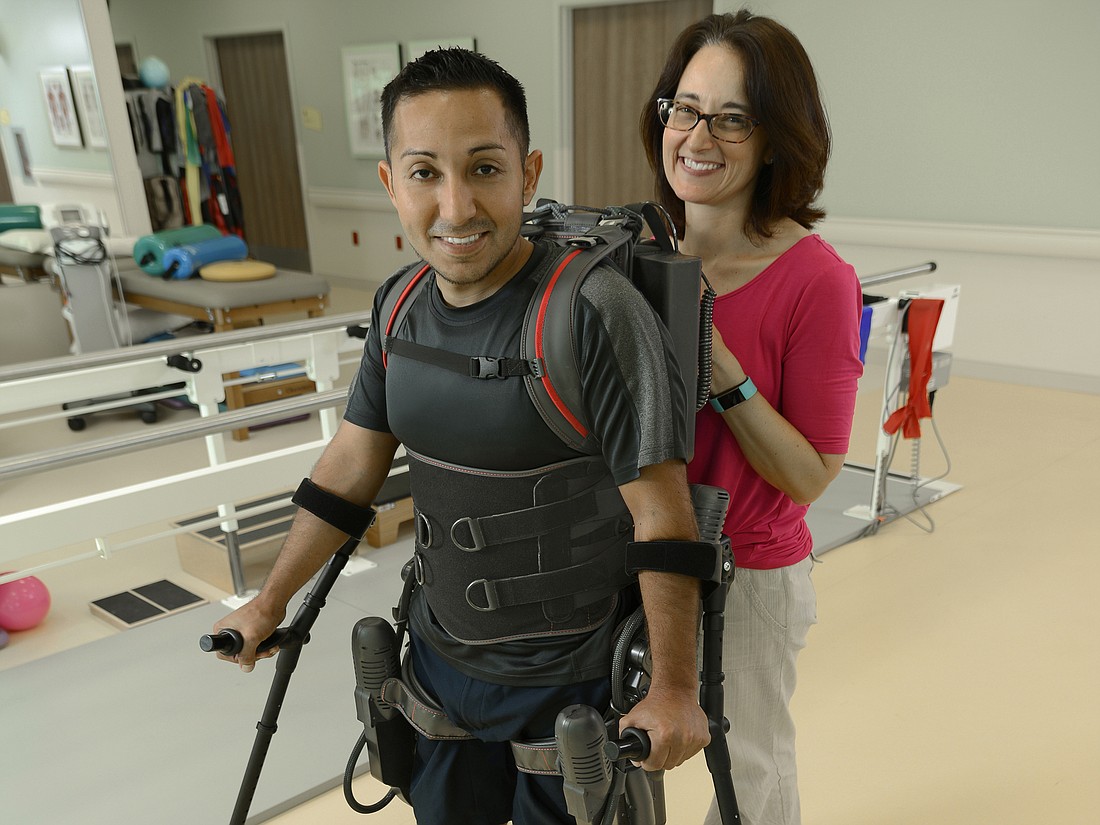- February 22, 2026
-
-
Loading

Loading

Physical therapist Dr. Danielle Frain considers herself like a detective when she has patients tell her about losing their balance or that they’ve fallen.
“I want to see, 'OK, why?'” Frain said. “What’s the underlying cause? So I do a detailed assessment of really their entire body, but especially I’m looking for those balance systems.”
Balance is the ability to maintain an upright posture, which is especially important as people age.
“There’s a possibility for there to be natural changes or decline in balance because every system declines as we age,” Frain said.
Three systems contribute to balance:
Dr. Steven Papuchis is a specialist in physical medicine and rehabilitation. He said the minimum for “decent balance” is to have two of three systems functioning.
“If your balance is off, then you can’t walk,” Papuchis said. “Sometimes, you can’t sit, and it makes it very, very difficult to complete even basic tasks.
“On top of that, it can dramatically impact your overall health because, again, if your balance is significantly affected, you’re not going to be able to exercise as well or as often as you should.”
More than one in four older adults fall each year, according to the Centers for Disease Control and Prevention.
“There’s a lot of data to suggest that people above the age of 65 who fall have a significantly increase level of morbidity and mortality that you worry about, especially the first year after a fall,” Papuchis said. “One of the most common things that can happen after a fall is a hip fracture.”
Papuchis said women tend to fracture more than men because they have an increased risk of osteoporosis after menopause.
“The older you get, the higher risk your risk of having a fracture and overall issues from a fall,” Papuchis said.
According to Papuchis, there is also an increased risk of diabetes, obesity, heart disease and chronic obstructive pulmonary disease in the year after a hip fracture.
To prevent falls from happening in the first place, both Papuchis and Frain recommend regular exercises that require balance and coordination.
Frain mentioned trying to stand on one leg or walking on different surfaces, such as the beach instead of a concrete surface.
“If people are not consistently working on their strengths, working on their balance, then their condition has the potential to worsen over time, which leads to more risk of falls,” Frain said.
Papuchis said his practice uses the Romberg test to evaluate someone’s balance.
“You put your feet close together, you stick your hands out in front of you, and then you close your eyes,” Papuchis said. "That really challenges that vestibular system as well as the sensation in your feet."
The Mayo Clinic recommends several other ways to work on improving balance, including changing the base of support, safely trying to balance with your eyes closed, turning your head or adding movement elsewhere.
“If you're doing a normal movement that historically you had no problem with, and then now you have that fear, or you have a misstep or an unsure step, then that to me says, ‘This is not as good as it used to be,’” Frain said. “‘I probably should go and see if I need a balanced assessment or a tune-up with their exercise program.’”
Papuchis said anyone feeling really unsteady should seek help.
“Getting someone who thinks they have impaired balance into a doctor’s office — so we can evaluate them and get on a treatment plan to help them improve their balance to prevent all the complications that might happen after a fall — is really, really important,” Papuchis said.